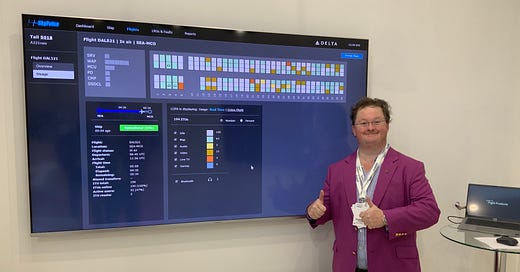Delta's Fabulous Data
New data generating systems in the cabin will revolutionise flying for both passengers & crew
Long-term readers of Airline Revenue Economics have seen the whole gamut of emerging technology covered. We have covered blockchain ticketing (see article), loyalty as fintech (see article) and artificial intelligence (see article).
These pieces are not idle speculation. Argentina’s Fly Bondi genuinely does issue NFT tickets. Avios Group Limited really d…



